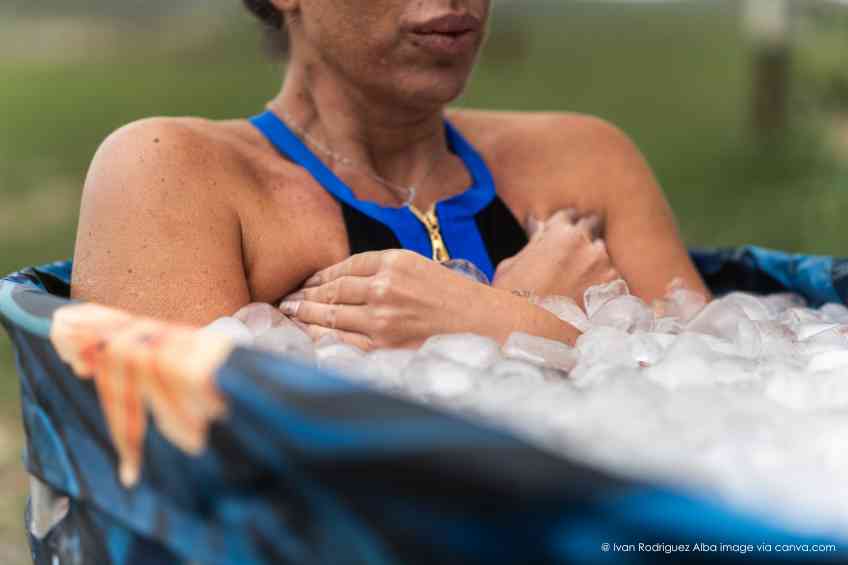By John Salak –
Cold plunges are not only painful and popular, but these icy dips just may be essential to cellular health and could even help fight diseases and promote longevity.
Athletes have been swearing by cold dips for years. Recently, these icy plunges have also become increasingly popular with the wider population, fueled by celebrity endorsements as ice baths that have become more practical and affordable to bring into the home.
These frigid baths are believed to aid physical rehabilitation that may be needed after casual workouts or simply playing a game of pickleball, tennis, softball or basketball. Proponents claim they not only help muscles recover quickly, but these dips also relieve overall soreness and promote relaxation.
Now researchers out of the University of Ottawa have provided another reason to take a dip. They claim cold dips have a positive impact, particularly on young males, regarding autophagic, the cells’ recycling system that promotes cellular health, as well as apoptotic, the programmed cell death that gets rid of damaged cells.
In layman’s terms, the research highlights the potential of cold exposure to enhance cellular resilience against stress.
The study focused on ten healthy young men who underwent cold-water immersion at 57.2°F for one hour across seven consecutive days. Blood samples were collected to analyze the participants’ cellular responses before and after the acclimation period.
“Our findings indicate that repeated cold exposure significantly improves autophagic function, a critical cellular protective mechanism,” noted Professor Glen Kenny, the study’s first author. “This enhancement allows cells to better manage stress and could have important implications for health and longevity.”
In fact, consistent exposure over a week led to increased autophagic activity and decreased cellular damage signals.
“By the end of the acclimation, we noted a marked improvement in the participants’ cellular cold tolerance,” explained King. “This suggests that cold acclimation may help the body effectively cope with extreme environmental conditions.”
The research noted that the work has implications that could extend beyond athletic performance. The findings suggest that proper autophagic activity could not only extend cellular longevity but also prevent the onset of various diseases.
“Cold exposure might help prevent diseases and potentially even slow down aging at a cellular level. It’s like a tune-up for your body’s microscopic machinery,” King added.
More research is needed, but the Canadian team noted that as cold dips and exposure become increasingly mainstream, understanding its effects on cellular mechanisms will not only become easier but also more vital.










